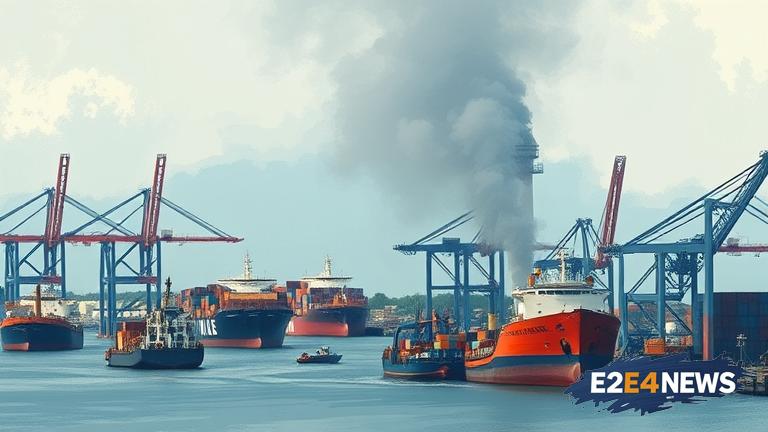A comprehensive study has exposed the alarming levels of toxic air pollution in Europe’s ports, highlighting the inadequate measures in place to mitigate this issue. The research, which analyzed data from various ports across the continent, found that the current regulations and practices are insufficient to protect the health and well-being of people living and working in the surrounding areas. The study identified a significant lack of transparency and accountability among port authorities, making it difficult to track and address the pollution problem. Furthermore, the investigation revealed that many ports are not implementing the most effective technologies and strategies to reduce emissions, such as shore power and cleaner fuels. The consequences of this inaction are far-reaching, with toxic air pollution contributing to a range of serious health problems, including respiratory diseases, cardiovascular conditions, and even cancer. The study’s findings are particularly concerning for communities located near major ports, where the air quality is often severely compromised. In addition to the health impacts, the study also highlighted the economic costs of air pollution, including lost productivity, increased healthcare costs, and damage to local businesses. The researchers emphasized the need for urgent action, calling on port authorities, governments, and industry stakeholders to work together to develop and implement more effective solutions. This includes investing in cleaner technologies, improving regulatory frameworks, and enhancing transparency and accountability. The study’s authors also stressed the importance of engaging with local communities and involving them in the decision-making process to ensure that their concerns are heard and addressed. Moreover, the research highlighted the need for a more coordinated approach to addressing air pollution, with a focus on developing and implementing EU-wide policies and standards. The study’s findings have significant implications for the shipping industry, which is already facing pressure to reduce its environmental impact. The International Maritime Organization (IMO) has implemented various measures to reduce emissions, including the introduction of stricter sulfur limits and the development of more efficient ship designs. However, the study suggests that more needs to be done to address the specific challenges posed by port emissions. In response to the study’s findings, several European ports have announced plans to invest in cleaner technologies and improve their environmental performance. For example, the Port of Rotterdam has launched a initiative to reduce its carbon emissions by 50% by 2030, while the Port of Antwerp has introduced a new system to monitor and reduce air pollution. These efforts are a step in the right direction, but the study’s authors emphasize that much more needs to be done to address the scale and complexity of the problem. Ultimately, the study’s findings serve as a wake-up call for Europe’s ports, highlighting the need for urgent and collective action to tackle the toxic air pollution that is putting the health and well-being of communities at risk.
